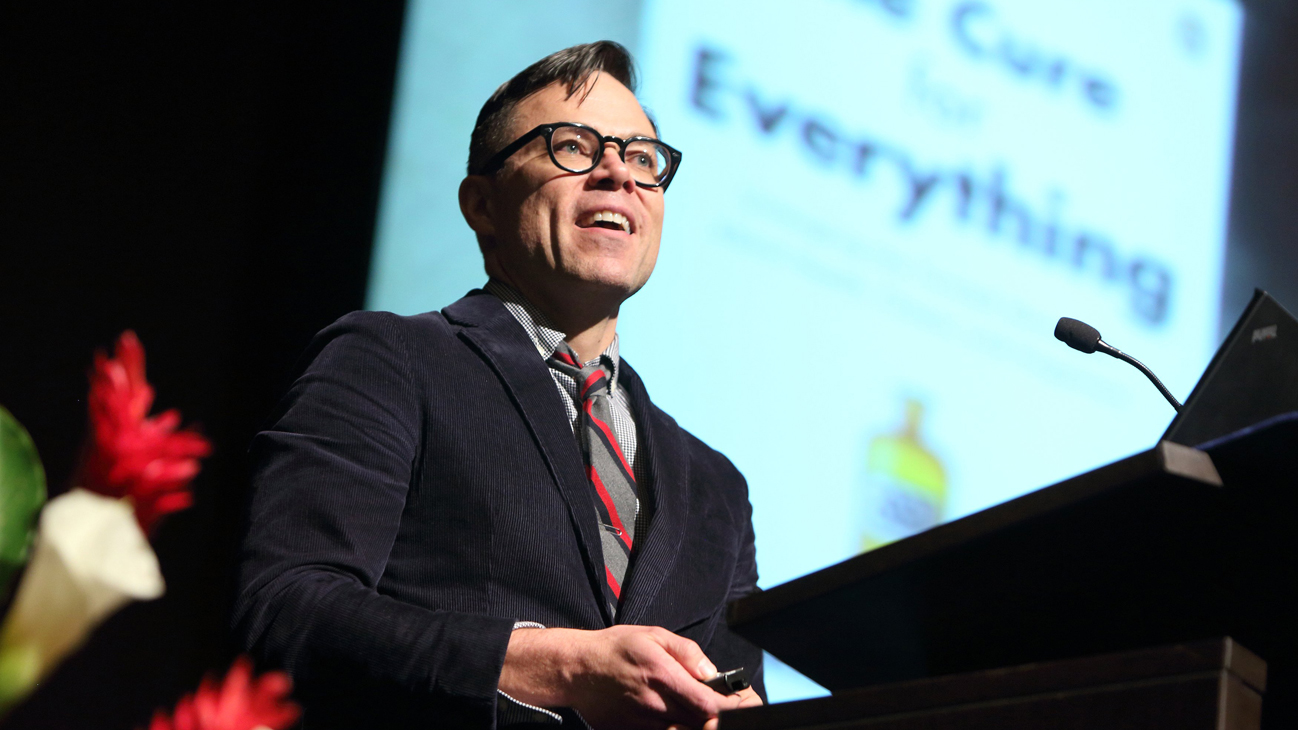Professor and author Timothy Caulfield is an unrivaled communicator who debunks myths and assumptions about innovation in the health sector—from research on stem cells to diets to alternative medicine—for the benefit of the public and decision-makers.
His most recent book The Vaccination Picture hit shelves in October. It’s an accessible and entertaining read on vaccination at a time when anti-vax hysteria appears to be building. Caulfield spoke to Chatelaine on some of the history and myths around vaccination and the fear that follows it. Here are some highlights:
It seems like the anti-vaccination movement is getting louder and more vocal. Is this true?
I think they’re louder than they have ever have been. The true hardcore anti-vaxxers aren’t a large percentage, though. There really aren’t that many people. But there is an increasing number of people who are vaccine-hesitant. They want the best for their kids, they’re looking for answers, and there’s evidence that the anti-vax voice is having an influence on that community. In one example, Josh Greenberg from Carleton found that more than a quarter — 28 percent — of Canadian parents had some concern that vaccinations are tied to the autism. That’s more than a quarter of Canadian parents who have a concern about vaccinations that is really founded on a lie.
Who is most vulnerable to these myths?
There seems to be a portrait of people who are vaccination-hesitant. They’re more likely to use complementary and alternative medicine, follow their intuition, and be suspicious of government. Then there are all these studies that show your classic conspiracy-theory believers. The unfortunate thing is that once a conspiracy theory is out there, whether it’s about vaccination or John F. Kennedy, it’s very hard to get rid of it.
In your new book, you write about the fact that France has the worst vaccination rates. How does Canada compare?
Canada is pretty good, but we have pockets where the vaccination rate is unacceptably low. We had the potential for a measles outbreak this year [a disease that was eliminated in Canada in 1998]. We can’t be complacent. The good news is that most Canadians support vaccination. But you still see really low uptake of the flu vaccine and people are suspicious of the HPV vaccine. We still have a lot of work to do. People should remember that getting vaccines is an altruistic act. It’s not just for you, it’s for your community. It’s especially true for the flu vaccine.
Read the full article here.

